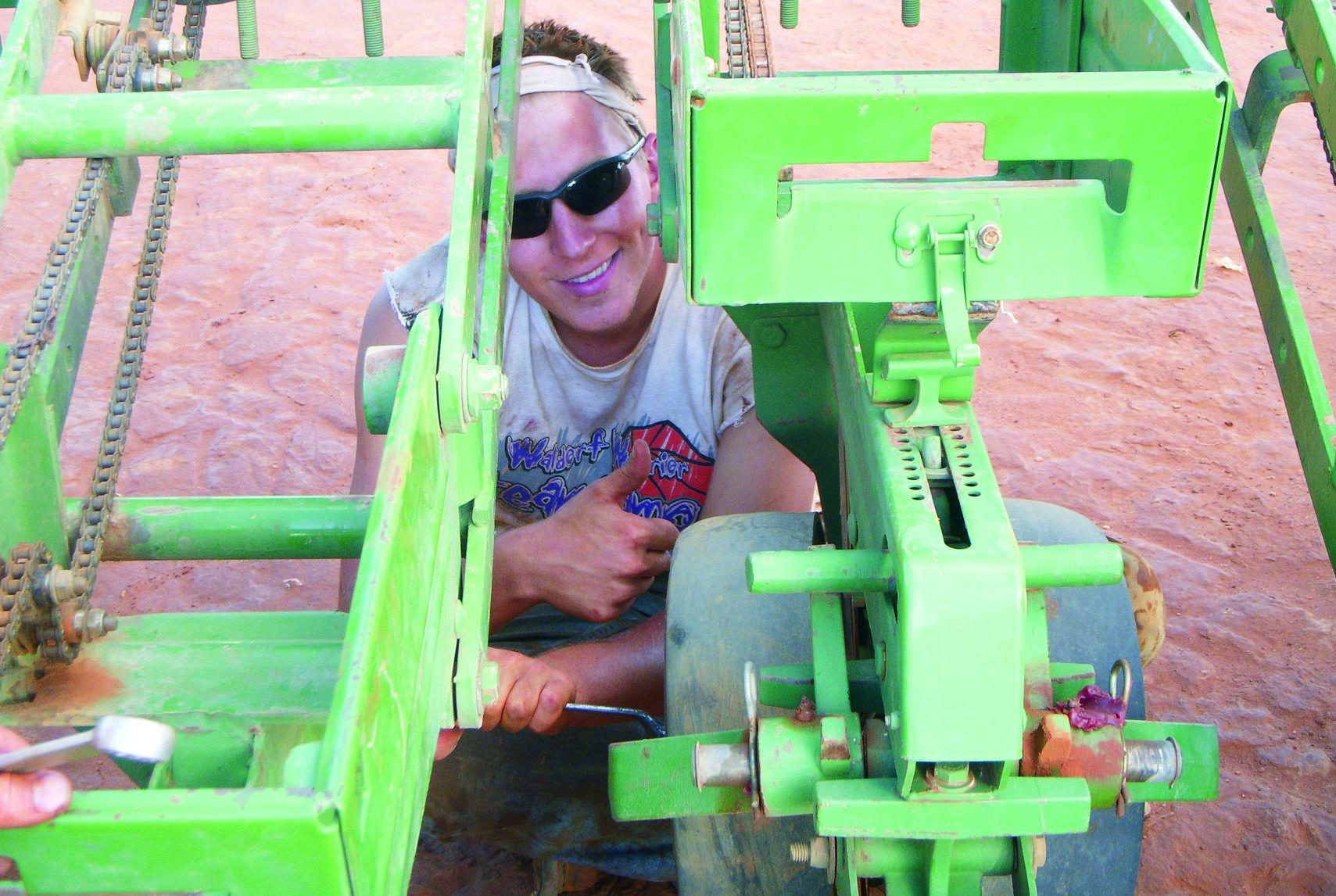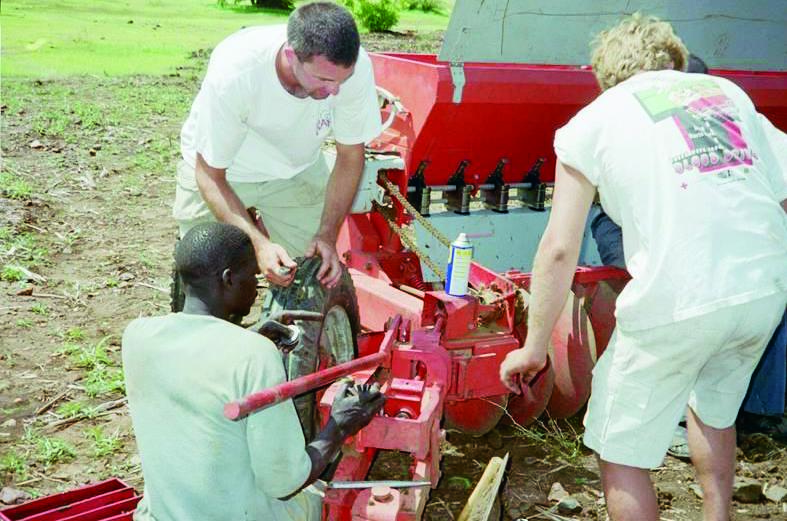- Candidates
- Login
- Set Up Account
- Create a Job Alert
- Search Tools
- Resources
- Employers
Navigating a new city can be a frustrating experience — riding with a terrible taxi driver, writing down the wrong address or following your GPS into unknown territory can cause stress and confusion. Now imagine managing this navigation in a new country, where you don’t speak the language or know who to rely on for help.
Students participating in international programs often run into unexpected challenges. Daily tasks such as finding transportation, buying groceries or using a computer can test critical thinking skills. (If you have ever tried finding macaroni and cheese in a foreign country or used a Microsoft Word program built for a different language, you know what I mean.)
Adaptability, communication and problem-solving skills are enhanced during successful international experiences.
“Studying abroad is important for academic and career development, as well as personal growth,” says Shelley Taylor, Director of the College of Agriculture and Life Sciences Study Abroad office at Iowa State University. “We live in a world where our graduates need to be global citizens. Studying abroad is a first step in building those skills and will help students be successful in whatever they do.”
Students with fully developed skill-sets are exactly what employers are looking for in a competitive job market. However, students and agricultural industry leaders don’t always see eye to eye on the most important skills in a career.
Agriculture Future of America (AFA), in partnership with Millennium Research, Inc., conducted the Future Leader Preparedness Study to identify the similarities and differences in the career skills students and industry leaders value. Both groups agreed on the top four skills, including “work ethic,” “accurate and pleasant communication,” “excellent time management” and “ability to think through problems.”

Ryan Hrubes, Dow AgroSciences, inspects a planter that was used to plant over 5,000 acres of corn and soybeans as a part of his summer internship in Brazil.
A division occurs when considering the skill “global market and cultural knowledge,” with only 40% of industry leaders indicating the skill as important, as compared to 70% of students. Also, industry leaders rank “valuing diversity” at 69%, while 77% of students rank the skill as critical.
These differences in opinion spark an interesting discussion on the importance of international experience for career preparation, especially because many of the skills considered most important by both groups can be developed through international experience.
“When you’re a college student, you have a lot of opportunities to manage, between internships, studying abroad and more,” says Erica Seitzer, who went on two short-term study abroad courses in college and spent six months in France for an internship with Pioneer Hi-Bred. “I’d encourage students to go abroad if possible. Your box becomes a lot bigger when you see the rest of the world, and the things you take away are really important skills to use in your personal and professional life.”
Seitzer, 2008 AFA Student Advisory Team member, believes her experience helped her learn to manage diversity, gain global business knowledge and enhance her communication skills, which proved valuable in landing her a full-time position with Pioneer as a government and industry relations analyst.
Ryan Hrubes, who went on three short-term international courses during college and spent six weeks in Brazil interning for Global Ag Investments, LLC., learned open-mindedness and resourcefulness during his time abroad.
“It’s important to know how to work with something when you don’t have everything you think you need,” says Hrubes, who now works for Dow AgroSciences. “We actually put together a large planter using just hand tools, which taught me there is more than one way to get something done.”
Understanding and meeting these challenges is an important part of any career. Through his involvement with mission trips in Mexico, Jamaica and Sudan, Jared VerDught, Product Support Representative for John Deere, learned to manage these challenges.
“John Deere continues to grow in other countries and understanding the background behind regional customs and requirements helps you better respond to the customer and fulfill their needs,” VerDught says.
“For example, in Europe, the streets are only so wide. They’d love to have big machinery, but if they can’t get through the road, it doesn’t do them any good,” he says.
Many who have international experience also claim adaptability as an important skill gained, including Howard Henke, who participated in two short-term courses in Brazil during college.
“I learned to adapt to a different culture on the fly,” said Henke, a Trading Manager for the Louis Dreyfus Corporation who has traveled to over 25 countries. “Each experience was a chance to step out of our comfort zones and those of us who embraced the new things enjoyed our experiences a lot.”
While it is clear many who have been abroad understand the importance of the skills they gained, some employers discard these experiences, claiming study abroad courses are merely “academic tourism.” This negative connotation, more often attached to short-term experiences, can potentially harm a student not fully prepared to explain the skills they gained.
“People have mixed feelings on international experiences,” says VerDught, 2001 AFA Community Scholar. “Those who have participated in international experiences should be sure to give concrete examples on what they did to work through specific situations. That can show a lot of ability.” There are some employers, however, who have begun to consider international experience as an asset that sets potential employees apart from other candidates.
“When I scan resumes of applicants with international experience, I view that as an openness to try new things and that says a lot,” said Henke, 2001 AFA Student Advisory Team member. “A high percentage of my colleagues have had international experiences and most of them went abroad before starting their careers.”
Regardless of an employers’ attitude, students with international experience must translate their experience into examples of skills gained. Just as it was important to prepare for your time abroad, the post-travel evaluation component is vital.
If you want to maximize this asset in your career search, it is important to consider how the best stories from your time abroad demonstrate skills applicable to the job you’re seeking.
“Sometimes I hear students sharing their experiences with the dean or other faculty members, and it is clear the students are only halfway there,” Taylor says. “They’re telling the story, but you can see the other person doesn’t fully understand the context or significance of the experience. It’s important for the traveler to understand it themselves in order to share it with others.”
Taylor suggests journaling and seeking opportunities to share and reflect on what was most important. Looking back on these experiences helps you vocalize personal and professional growth.
Additionally, many universities are now offering workshops and courses devoted to helping students figure out what skills they gained.
Preparing for potential questions continues to be an important tool for the interview process. When you have an international experience on your resume, consider what you will say if the interviewer asks a specific question about your time abroad, as well as how you might describe a skill from that experience even if there are no direct questions.
Hrubes, who served on the 2009 AFA Student Advisory Team, says, “When an interviewer asks you a situational question like, ‘How did you deal with this when you were in this situation?’ try to pull in an international experience to show how valuable it actually was to you.”
Prior to your time abroad, consider how you might grow professionally and seize every opportunity to expand your knowledge.
“There really is a new skill-set that employers need,” Taylor says.

Jared VerDught, John Deere, repairs a grain drill during his internship in Sudan, Africa, where he taught agricultural practices.
“It’s the skill-set for being a global citizen. It’s not just about decision making or soft skills, but there is a cross-cultural ease involved. Even though students may not be experts in the countries they visit, they have the ability to relate to different people. That’s one reason we encourage students to do more than one experience if possible.”
If utilized to the fullest, international experience can be a great tool for career development.
Capitalize on your experience once you return home by unpacking the knowledge and skills you gained. Without a doubt, the benefits will extend far beyond the day you put your passport away.